- Research
- PhD 2021
- Veterinary Medical Sciences, Public Health and animal welfare
- Cellular and Molecular Biotechnologies
- Food Science
- International Perspectives in Corporate Governance and Public Administration
- Processes law harmonization between history and system
- History of Europe from the Middle Ages to Contemporary Age
- Economic and social sciences
- University Research Catalogue
- Studying at UniTe
- A Guide for international students
- International Welcome Office
- The Italian University System
- Enrolment Procedures for EU Students or Holders of a Residence Permit in Italy
- Enrolment Procedure for Non-EU Students
- Chinese Students under the "Marco Polo" Project
- Erasmus Incoming Students
- Tuition fees
- Applying for an Entry Visa or a Residence Permit
- The Centre for Modern Languages
- Scholarships and financial support
- Health Services in Italy
- Job Placement Service
 Programme catalogue - A.Y. 2023/2024
Programme catalogue - A.Y. 2023/2024
 Programme catalogue - A.Y. 2022/2023
Programme catalogue - A.Y. 2022/2023
 Communication Science
Communication Science
Communication Science

- Communication Science
Programme Director: Prof. Marcello Pedaci | mpedaci@unite.it
First-Cycle Degree Programme
In the 1960s Marshall McLuhan predicted the advent of an “electronic age” where – he wrote – men would have had «no possible environment except the globe and no possible occupation except information-gathering». That age has come, and it is today’s age. Except that, in addition to what McLuhan envisaged, we now know that communication is as central as information gathering. In this sector, in fact, over the last few years there has been a transformation that is as fast as it is surprising: who could have imagined, a few years ago, that journalists would replace their pen – or their keyboard – with a video camera or a mobile phone? And that political communication would be reduced in 140-character “tweets”? Or that companies could have suffered huge economic losses only for miscommunication?
And if the world is changing, communication career options also are changing, becoming increasingly complex and often taking on unexpected features: who could have imagined professions like a web content manager or a social media manager?
In addition to being aware of this transformation, students who decide to enrol in a degree course in Communication Science are aware that communicating and speaking are not synonyms; that good communication does not depend only on the technology used to produce it, indeed they know that there is an adequate way to communicate for each type of technology. But above all, they are aware that before communicating it is necessary to know.
To respond to the challenges of an ever-changing world of communication, this First-Cycle Degree Programme is very complex and combines solid basic knowledge with specialized knowledge. Furthermore, after a first year with basic teaching/learning activities, students may opt for two different curricula focusing on, respectively, business and commerce communication and media and digital platforms communication; each of them will have specific subjects.
The central and characteristic elements of this degree course are essentially two: a constant dialogue between different disciplines and a close relationship between theoretical and practical aspects. In fact, laboratory activities are always joined to theoretical ones, so that students can learn how to put into practice what they study, helped also by workshops and laboratories where they can test themselves with some of the professions in the world of communication. This way, at the end of the three-year cycle, students who do not wish to continue their academic path, will have the skills necessary to start working in one of the many communication sectors, thanks also to the on-the-job training they may receive through the internships offered by the Faculty in agreement with many local and national companies.
- Information
-
Quality and Teaching Support Service
tel. +390861266020
Campus Aurelio Saliceti - Via R. Balzarini 1 - Teramo
- Teaching organization
-
